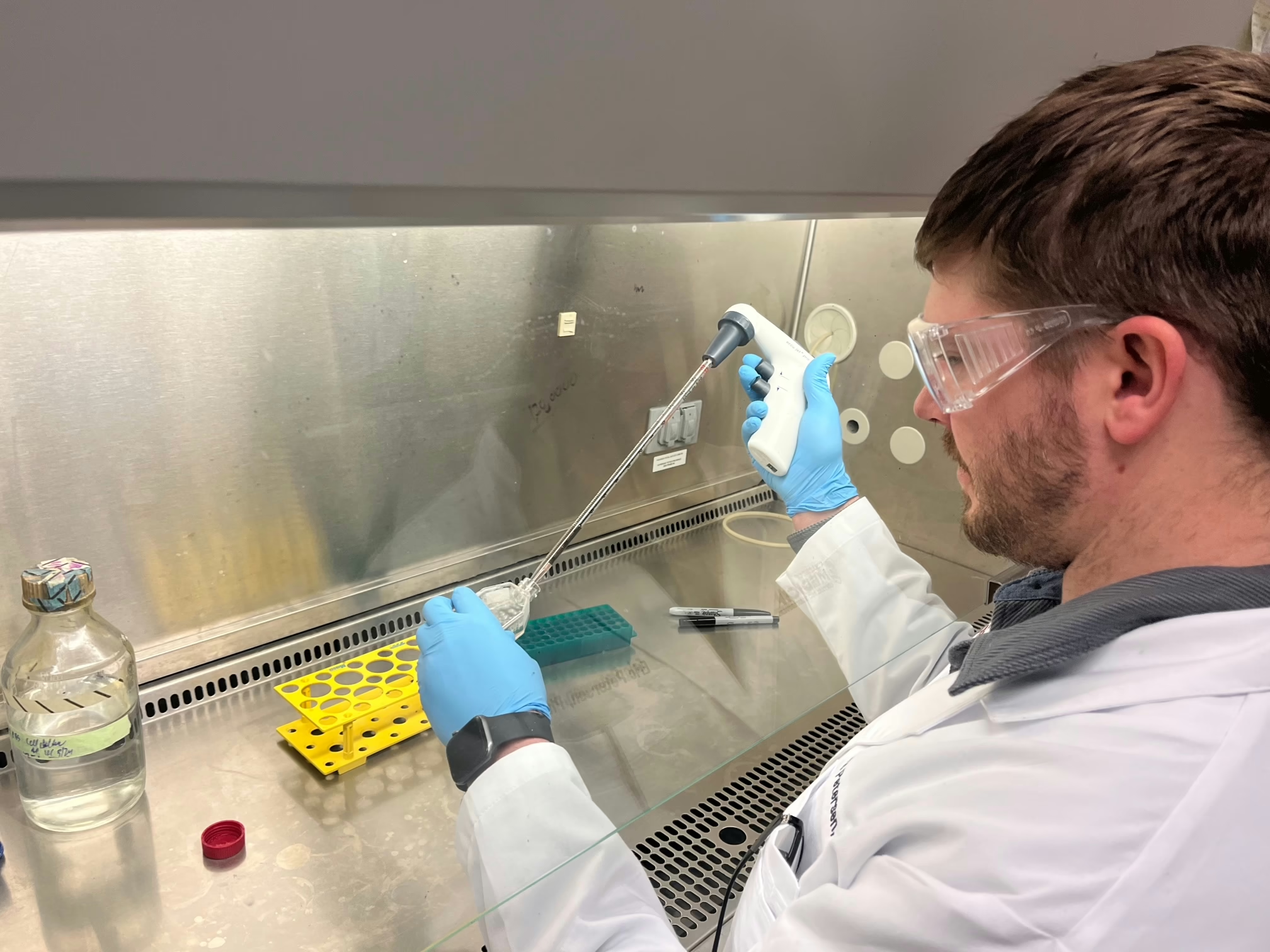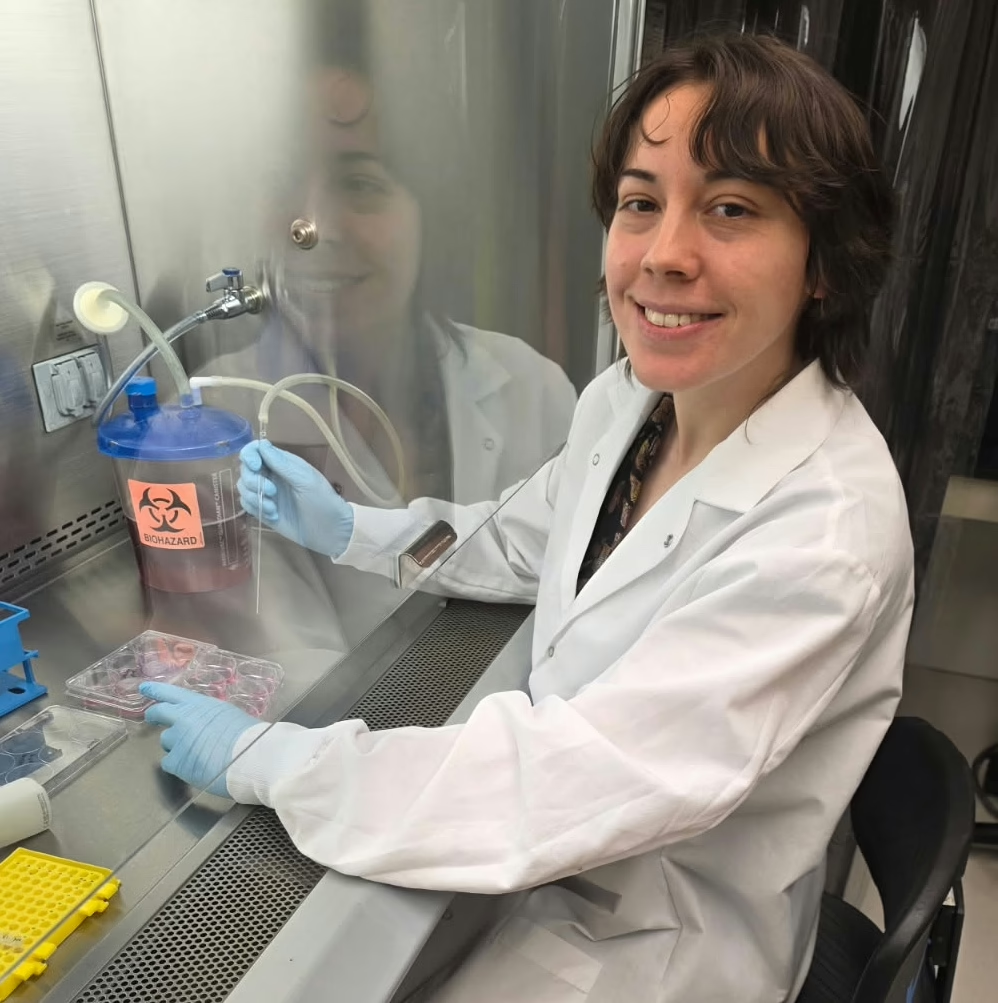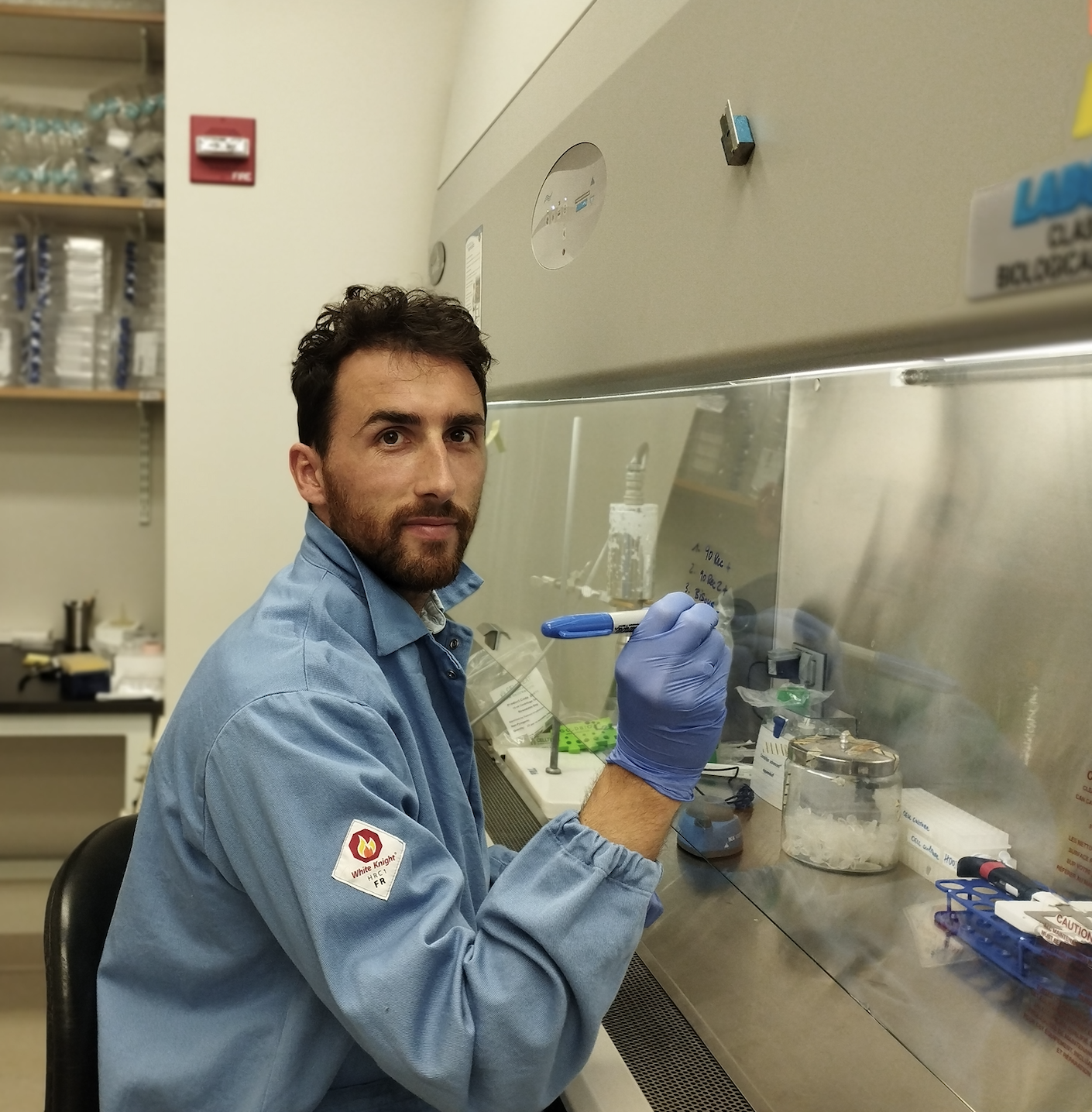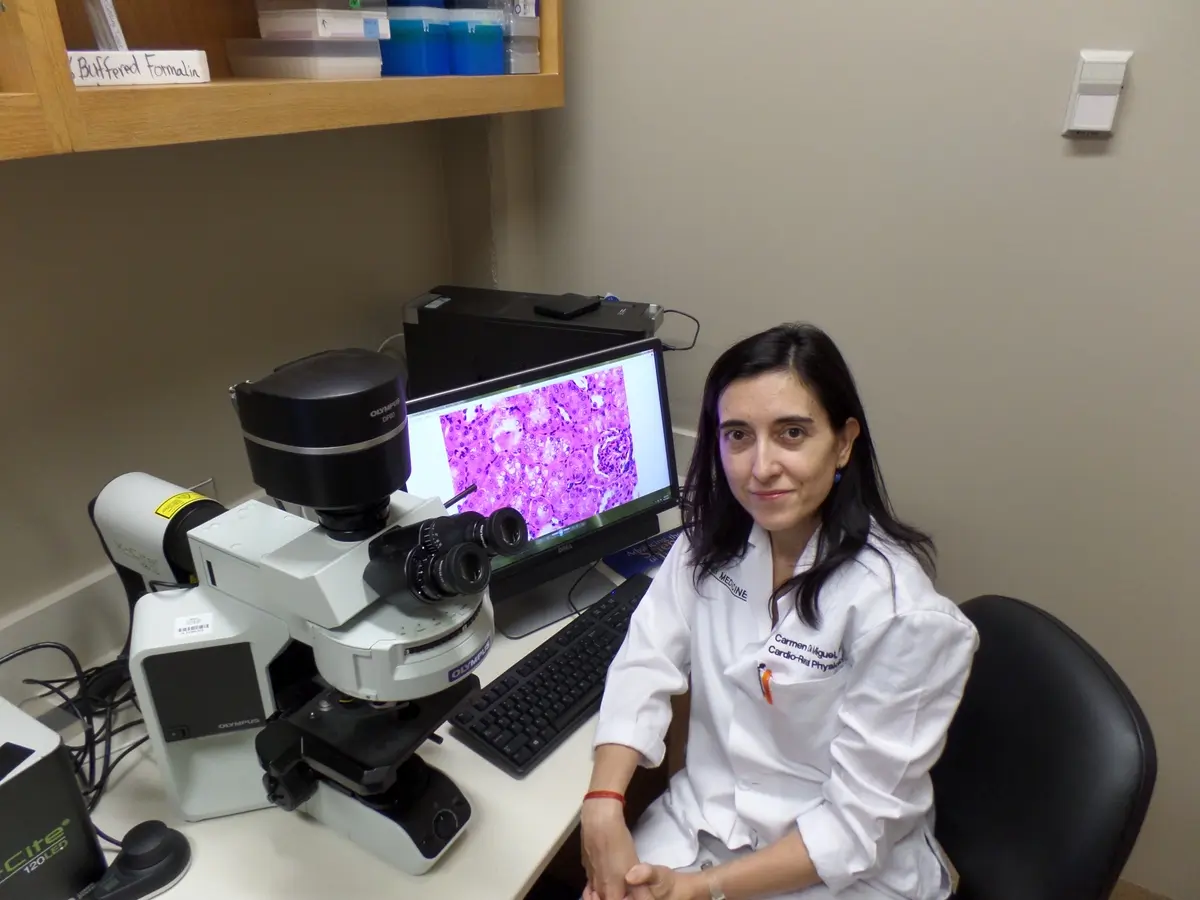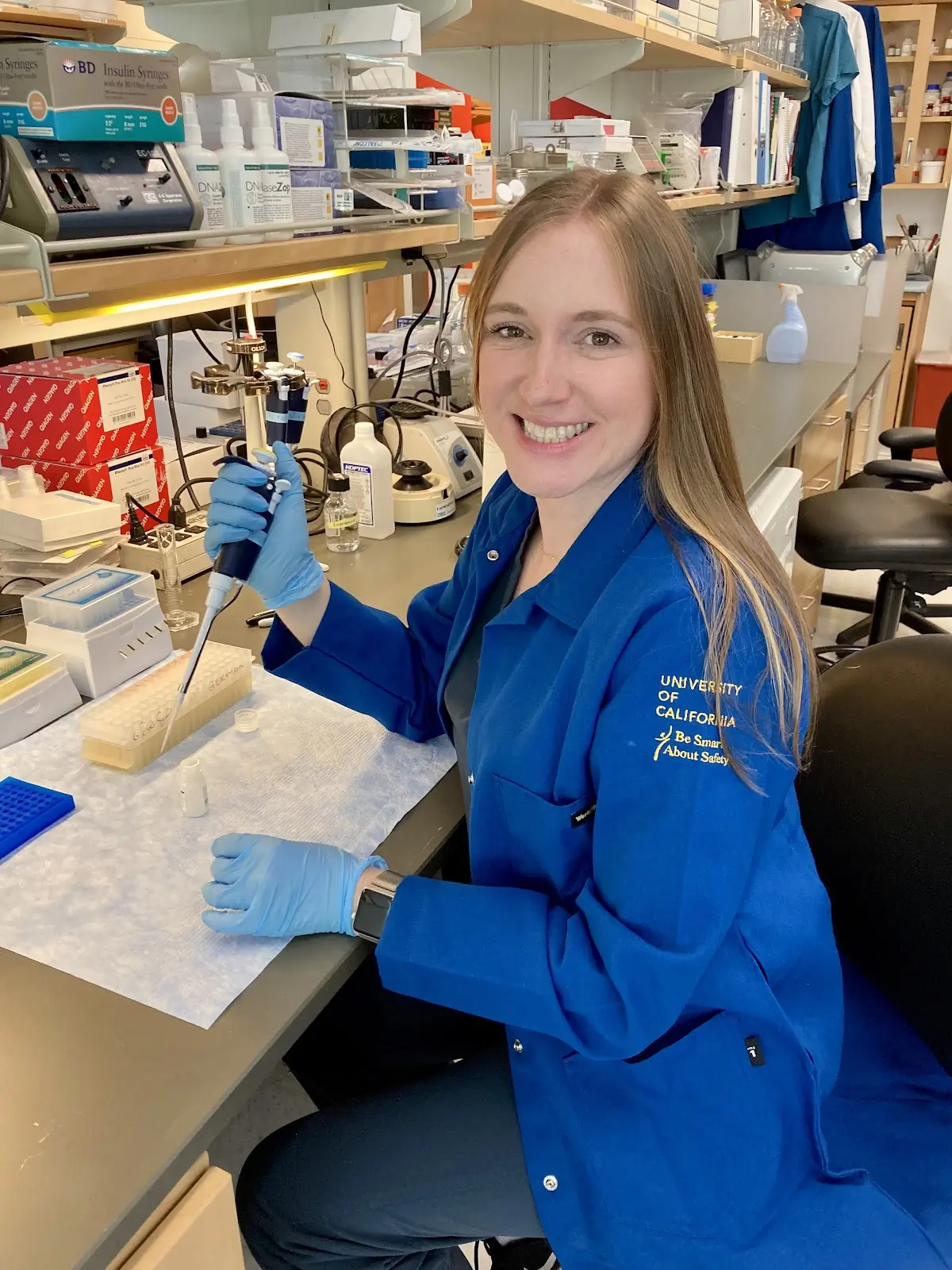6 Month Update
Aim 1. Determine the viral infection history of T1D patients compared to healthy controls.
Methods: We designed 15,000 oligonucleotides covering all 6 of the insulin carrying viruses and all 5 of the endothelin carrying viruses.
The process to elaborate these oligonucleotides is detailed below:
1. Combined all protein sequences for each virus type, removing seqs <30 aa long (1671 total targets remaining).
2. Generated clusters of similar peptides (Uclust, id threshold = 80-85).
3. Design strategy targeting 100% of unique 9mers.
4. Removed low complexity peptides (top 2AA made up more than 60% of the sequence).
5. Added 200 positive control peptides, which we now are commonly reactive against human sera.
This resulted in 15,000 oligos that are 128 nt in length, 90 nt encode for the viral peptide, the other 38 are constant adapters used for amplification. This oligonucleotide library and a previously designed library that contains a large library of viruses, were used to run 2 main analyses against Serum of T1D patient and Controls. These serums were classified age of sample collection and age diagnosis (Fig.1A) of T1D as informative section for potential late comparison.
Results: Reactivity of T1D serum vs Control was analyzed globally comparing the total number of enriched peptides for T1D and control samples with the established VILP carrying viruses library (Fig.2B). Results show a slight difference between control serum and T1D. This difference is mostly driven by outliners found in T1D serum patients.
Next step in the project will focus on the detailed exploration of the curated data and we will investigate which peptides are enriched in these samples to try to understand what’s driving this pattern. Additional analysis will determine what are the peptide’s specific enrichment for each type of serum.
Aim 2: Elucidate the infectivity potential of VILP carrying virus in mammalians systems and their role in T1D development of non-obese diabetic (NOD) mice
Methods: The susceptibility and permissiveness of 10 mammalian cell lines were analyzed at 1, 3, 6, 12, and 24 hours post-infection with different multiplicities of infection (MOI of 1 and 10) and at various temperatures (37°C, 33°C, and 28°C, as applicable to each cell line). Specifically, we tested human kidney cells (HEK-293T), intestinal cells (HCT-116, DLD1, LS174T), hamster kidney cells (BHK), murine macrophage cells (RAW 264.5), and human fibroblasts overexpressing insulin receptors A or B or IGF1R.
Results:
Comparing viral transcript expression between the control cell line (GK cells) and the tested cell lines revealed no evidence of effective permissiveness (data not shown). Although the 293T-HEK cells cultivated at 30°C have been able to express minimal viral transcripts, finally after further analysis these infections were abortive, as no virus-induced cytopathic effects were observed, and the transfer of supernatants from the tested cells to susceptible GK cells did not result in infection. Further exploration of this interesting potential inter-species susceptibility will be to investigate as GIV32 (VILP) as been described by our laboratory as an early viral transcripts and could still be expressed in these early infection time leading to a potential immune cross reactivity with Insulin peptide.
Additional cell lines, such as murine β-cell lines (Min6) and human liver cells (Huh7), remain under experimental investigation due to time constraints.
Next step in the project will be further analysis based on these initial results will proceed in the next project phase, including examining the influence of GIV exposure on Type 1 diabetes development using the NOD mouse model.
Project Description
Type 1 diabetes (T1D) is a condition where the body’s immune system mistakenly attacks and destroys cells in the pancreas called beta cells. These cells are responsible for producing insulin, a hormone that regulates blood sugar levels. Despite extensive research, we still don’t fully understand what causes T1D, but it’s believed to involve a combination of genetic and environmental factors.
Genetic studies have identified certain regions of our DNA that influence the risk of developing T1D, but the increasing number of cases suggests that genes alone can’t explain it. This has led scientists to investigate environmental factors that might trigger the immune system to attack pancreatic cells. However, we’re still uncertain about which specific environmental factors are involved.
Recent studies have suggested a link between viral infections and the onset of T1D. Some viruses like rotavirus, mumps virus, cytomegalovirus, and rubella virus have been associated with T1D. One particular type of virus called coxsackievirus B (CVB) seems to be strongly linked to T1D. Surprisingly, certain viruses found in the human gut, that such as those from the Iridoviridae family, have been found to carry genes similar to those that code for human insulin. This similarity might confuse the immune system, leading it to attack insulin-producing cells.
Our research team and I, aims to investigate the role of viral infections, including those carrying viral-insulin viruses, in causing T1D. By understanding how these viruses contribute to the development of T1D, we hope to develop new treatments to prevent and manage the condition better. We believe that viral infections can both trigger and potentially protect against T1D, and studying them could provide crucial insights into the disease.


